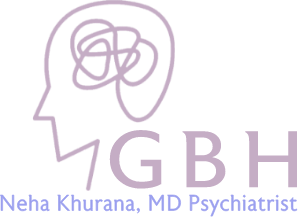
- February 18, 2025
Black History Month: Resistance, Accountability, and Progress in Mental Health

Mental Health Disparities and the Need for Equity
Despite the growing awareness of mental health issues, patients of color continue to experience challenges in accessing care. Financial barriers, cultural stigma, and a shortage of Black mental health professionals contribute to a healthcare system that often falls short of meeting the needs of Black individuals. Moreover, legislative policies have historically restricted access to certain forms of care, further limiting mental health support for marginalized communities.
During the COVID-19 pandemic, these disparities became even more evident as Black Americans died at disproportionate rates, and vaccine hesitancy was fueled by a long history of medical mistrust. The emotional weight of the pandemic was compounded by the socio-political climate, particularly following the tragic death of George Floyd, an event that reignited discussions about systemic racism and its impact on mental well-being.
One Conversation Can Change Everything! Consult Dr. Neha Khurana for
The Psychological Impact of Structural Racism
The effects of systemic racism extend far beyond healthcare and impact nearly every facet of life—education, employment, housing, and justice. Chronic exposure to racial discrimination leads to higher rates of stress, anxiety, depression, and trauma within Black communities. The concept of racial trauma—the emotional and psychological distress resulting from racial discrimination—must be addressed as a public health crisis.
At Georgia Behavioral Health Professionals, we recognize the importance of providing culturally competent mental health care. This means creating safe spaces where individuals feel seen, heard, and supported by professionals who understand the historical and cultural factors influencing their experiences.
Mental Health as an Act of Resistance
This year’s Black History Month theme, Black Resistance, serves as a reminder that the fight for equity continues. Resistance in the mental health space means advocating for accessible, inclusive, and equitable care for Black individuals. Dr. Martin Luther King Jr. exemplified this form of resistance, emphasizing love, unity, and progress in the face of adversity.
His words—“Darkness cannot drive out darkness; only light can do that. Hate cannot drive out hate; only love can do that.”—resonate in the mental health field today. Healing from racial trauma requires not only professional support but also collective acknowledgment of past injustices and an unwavering commitment to progress.
One Conversation Can Change Everything! Consult Dr. Neha Khurana for
Our Commitment to Mental Health Equity
At Georgia Behavioral Health, we are dedicated to breaking down barriers to mental health care for Black communities. This commitment includes:
- Offering culturally competent therapists trained to address racial trauma and systemic stressors.
- Providing accessible mental health resources that bridge the gap in care.
- Advocating for policies and programs that promote equity in mental health treatment.
The recognition of Black History Month is not only a moment of acknowledgment but a call to action. America is enriched by Black culture, creativity, innovation, and resilience. This month, and every day beyond, let us commit to resistance against inequity, accountability for progress, and the prioritization of Black mental health.
